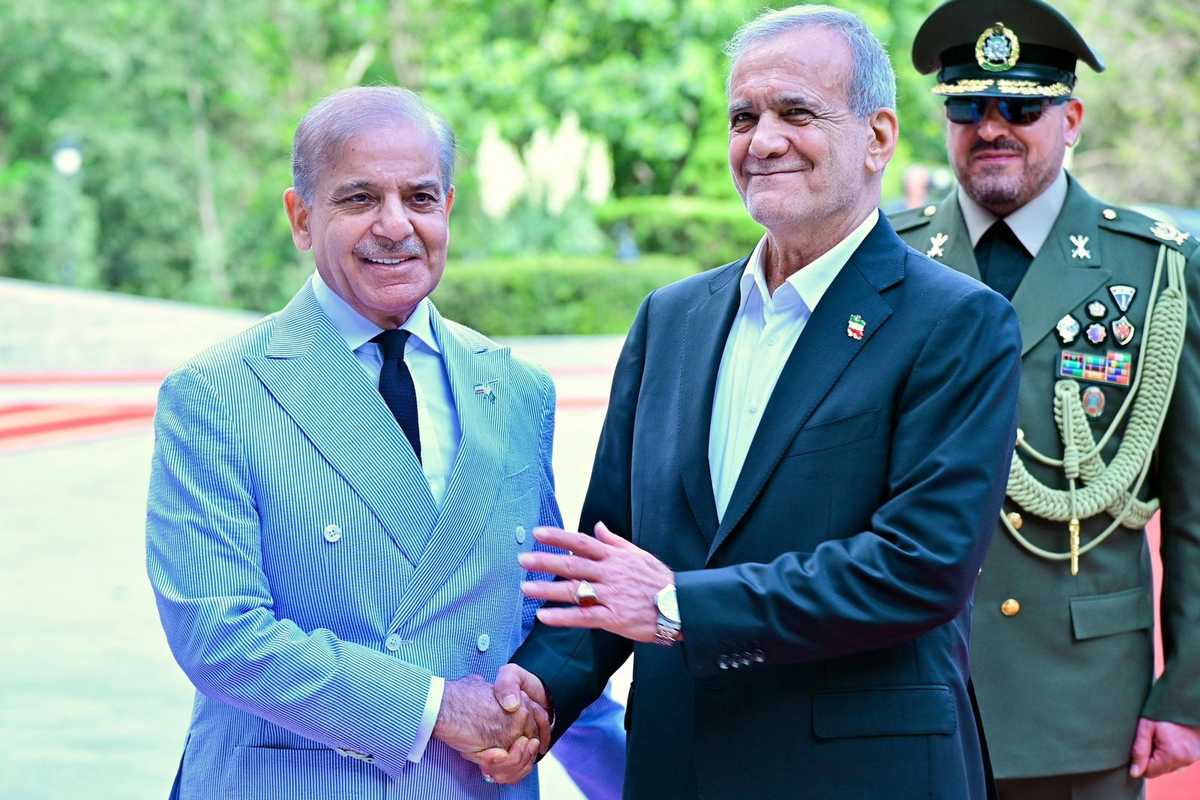Pakistan, Iran call for Muslim unity amid Middle East tensions
Pakistan's PM and Iranian president agree to stay in touch as the situation continues to unfold
News Desk
The News Desk provides timely and factual coverage of national and international events, with an emphasis on accuracy and clarity.

As tensions linger across the Middle East following the Iran-Israel conflict, Pakistan and Iran on Tuesday agreed to ‘remain in touch’ and underscored the importance of unity in the Muslim world during what both leaders called a “most challenging time.”
The conversation took place between Pakistan’s Prime Minister Shehbaz Sharif and Iran’s President Dr. Masoud Pezeshkian, after the former made a phone call to discuss the evolving regional situation.
Prime Minister Sharif conveyed Pakistan’s deep concern over the rapidly deteriorating conditions in the Middle East. Emphasizing the need to restore peace through dialogue and diplomacy, he reiterated Pakistan’s full support for Iran at all diplomatic forums, including the United Nations Security Council and the Organization of Islamic Cooperation (OIC).
He also called for adherence to international law and the principles of the UN Charter by all parties involved.
President Pezeshkian welcomed the call and expressed appreciation for Pakistan’s consistent and principled support during the crisis.
He acknowledged Pakistan’s constructive role in advocating for a peaceful resolution to the conflict and agreed on the urgent need for unity among Muslim nations. Both leaders concluded the call by agreeing to stay in touch as the situation continues to unfold.
The war between Iran and Israel began on June 13, when Israel launched a wave of airstrikes across Iran, targeting what it described as nuclear weapons development sites. Iran responded with a barrage of missiles and drones aimed at Israeli cities. The escalating violence has resulted in hundreds of deaths in Iran and dozens more in Israel.
Israel claims to have neutralized key military and nuclear sites, killing several top Iranian military commanders and nuclear scientists. However, Iran retaliated forcefully, breaching Israel’s Iron Dome defense system and hitting civilian and commercial targets -- including a hospital, a tech hub hosting a Microsoft office, and the Tel Aviv stock exchange.
As tit-for-tat strikes intensified, global concerns grew over the potential for a broader regional war. Diplomatic efforts gained little traction -- until the early hours of June 24, when U.S. President Donald Trump announced a ceasefire agreement between Iran and Israel. Yet, just hours later, reports of renewed strikes and violations from both sides cast doubt over the truce’s durability.







Comments
See what people are discussing